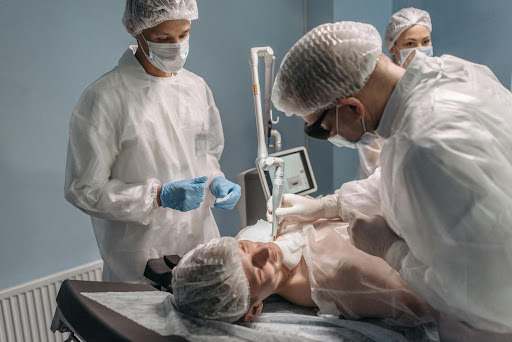In today's rapidly evolving medical field, plastic surgery has emerged as a crucial component, transcending its mere cosmetic origins to become a vital part of comprehensive healthcare. This discipline, now at the forefront of medical technology and surgical techniques, offers both aesthetic and reconstructive solutions that enhance the lives of patients worldwide.
The Evolution of Plastic Surgery
Initially perceived primarily as a means to enhance physical appearance, plastic surgery has transformed both scope and perception. The field now encompasses a wide array of procedures that restore function, correct deformities, and improve quality of life. From reconstructive surgeries after accidents or diseases to elective cosmetic procedures, plastic surgery is an integral part of advanced healthcare.
The Role of a Qualified Plastic Surgeon
The success of plastic surgery heavily relies on the expertise and skills of the surgeon. A qualified plastic surgeon is not only trained in the latest surgical techniques but is also adept at tailoring procedures to the individual needs and goals of their patients. This customization is crucial, as it ensures that the outcomes not only improve aesthetics but also enhance functionality and overall wellbeing.
Reconstructive Surgery: Beyond Aesthetics
Reconstructive plastic surgery is a lifeline for those suffering from physical abnormalities due to congenital defects, trauma, or illness. These procedures are designed to restore functionality and appearance, helping patients lead normal, fulfilling lives. For instance, breast reconstruction post-mastectomy offers emotional and physical healing, while hand surgeries restore mobility and function.
Cosmetic Procedures: Enhancing Self-Esteem
On the cosmetic front, procedures such as rhinoplasty, liposuction, and facelifts are performed not just for vanity but often to boost self-esteem and confidence. In a world where appearance can impact personal and professional relationships, cosmetic surgery provides an avenue for individuals to feel more comfortable in their skin, thereby improving their overall quality of life.
The Technological Advancements in Plastic Surgery
The field of plastic surgery is one of the most technologically advanced areas in medicine. Surgeons now use state-of-the-art equipment and techniques that increase precision and reduce recovery times. Innovations such as laser surgery, minimal invasive techniques, and 3D printing of biocompatible materials have revolutionized the way surgeries are performed, making them safer and more effective.
Ethical Considerations and Patient Safety
As with any medical practice, plastic surgery involves crucial ethical considerations. Surgeons must ensure that patients have realistic expectations and fully understand the risks involved. Furthermore, the choice to undergo surgery should be self-driven rather than influenced by external pressures. Patient safety and postoperative care are paramount, with continuous advancements in surgical protocols to minimize risks.
Conclusion
Plastic surgery, once seen merely as a tool for aesthetic enhancement, has grown into a diverse field that addresses a wide range of medical issues. It plays a transformative role in modern healthcare by offering solutions that restore, reconstruct, and refine, improving not just physical appearances but overall life quality. The journey of a patient considering plastic surgery begins with choosing a knowledgeable and experienced plastic surgeon, who can guide them towards making informed choices about their health and appearance. As technology and techniques continue to evolve, the future of plastic surgery looks promising, with even more innovative treatments on the horizon.

